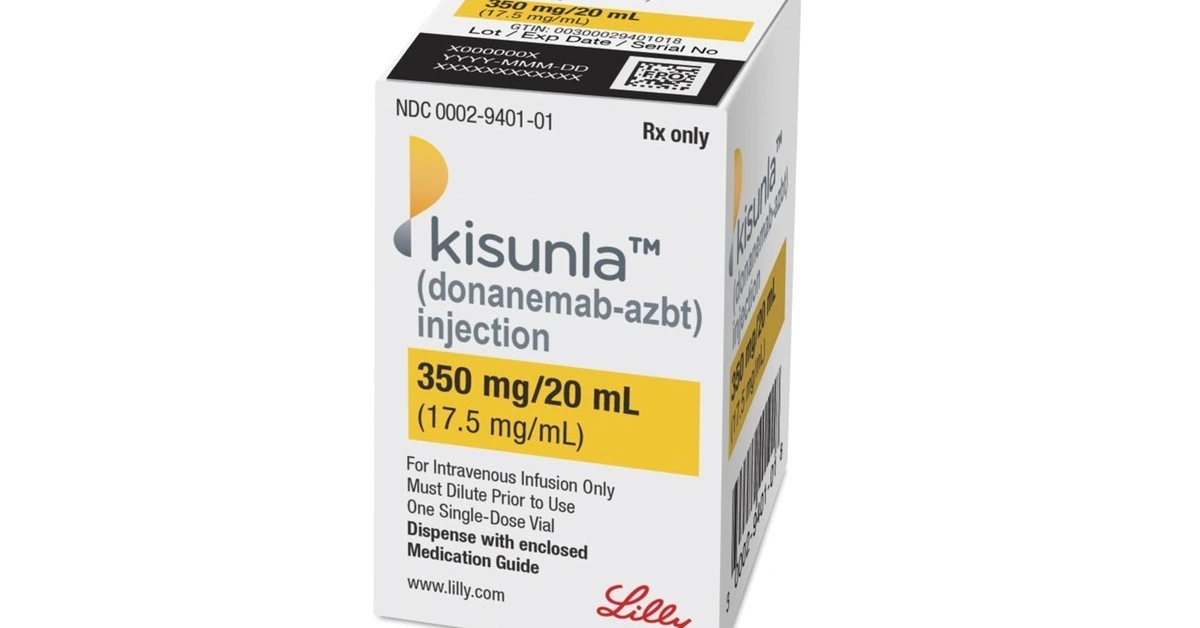
CHINA – Eli Lilly has received another regulatory approval for its anti-amyloid therapy, Kisunla (donanemab), for the treatment of Alzheimer’s disease in China, the world’s second-largest pharmaceutical market.
The National Medical Products Administration (NMPA) granted approval for Kisunla to be used in adults with early symptomatic Alzheimer’s disease, including those with mild cognitive impairment (MCI) and mild dementia who have confirmed amyloid pathology.
This marks China as the fourth major market where Kisunla has been approved, following the United States, Japan, and Great Britain.
The approval comes almost a year after the NMPA cleared Leqembi (lecanemab), a competing anti-amyloid drug from Eisai and Biogen, in January 2024.
China is expected to be a significant market for both Kisunla and Leqembi, due to its rapidly aging population and a higher prevalence of Alzheimer’s disease compared to the global average.
According to Lilly, nearly 6% of people over the age of 65 in China are living with Alzheimer’s and related dementias, and this figure is expected to rise to around 11% by 2050.
However, the sales potential of Kisunla and Leqembi remains uncertain. Both drugs have faced criticism for offering only modest cognitive benefits, posing potential risks of serious side effects, and being viewed as too costly to be cost-effective.
Lilly has recently released new clinical trial data suggesting that a modified starting regimen for Kisunla may improve its safety profile.
While Leqembi experienced a slow initial uptake, Eisai and Biogen observed a more promising uptake mid-year, prompting them to raise their 2024 sales forecast.
However, this optimism was tempered by a slowdown in the third quarter. Lilly, on the other hand, has not disclosed any sales figures for Kisunla, which was first approved in the U.S. in July.
The slow market adoption could be partly due to differing attitudes among physicians. While some view these drugs as a breakthrough treatment option for Alzheimer’s—offering the potential to modify the disease—others remain skeptical about their overall benefits and high costs.
Kisunla’s approval in China is based on the results of the phase 3 TRAILBLAZER-ALZ 2 trial, which demonstrated that Kisunla slowed cognitive and functional decline by 35% compared to a placebo on the integrated Alzheimer’s Disease Rating Scale (iADRS), showing a statistically significant improvement.
Lilly has claimed that Kisunla offers advantages over Leqembi, including approval for use only until amyloid plaques are cleared from the brain, while Leqembi requires continuous treatment.
Additionally, Kisunla has the benefit of a once-monthly dosing schedule, reducing the need for frequent visits to infusion clinics.
Ilya Yuffa, president of Lilly International, emphasized that Kisunla provides patients and their families with access to a treatment that can offer more time to engage in meaningful activities during the early symptomatic stage of Alzheimer’s.
He added that Kisunla continues to show meaningful results and can now help improve the standard of care for people living with Alzheimer’s in China.
XRP HEALTHCARE L.L.C | License Number: 2312867.01 | Dubai | © Copyright 2025 | All Rights Reserved